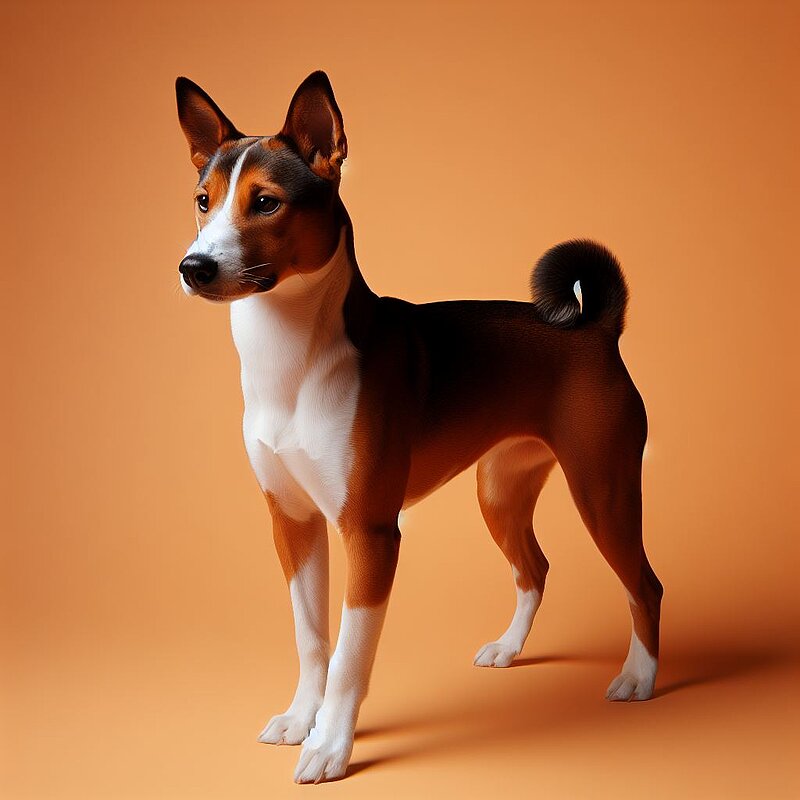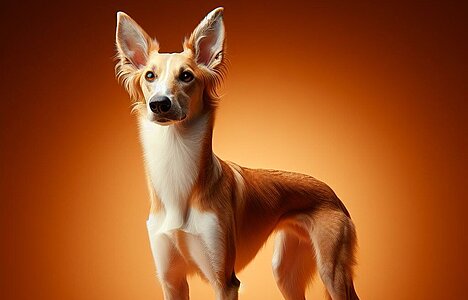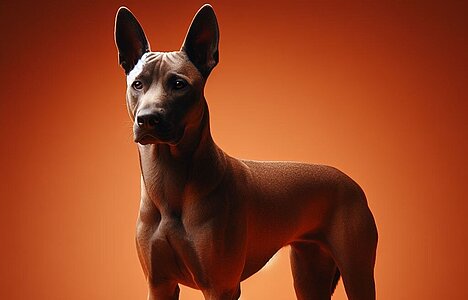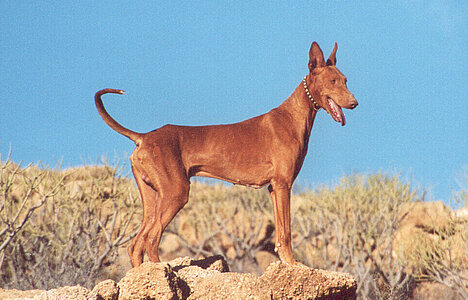Basenji: The dog that doesn't bark
The history of the Basenji
The Basenji originally comes from Central Africa, where it has been prized by locals as a hunting dog for centuries. Archaeological finds and ancient works of art from Egypt indicate that this type of dog already existed thousands of years ago. Basenjis were used by the pygmies in the rainforests of the Congo to hunt game. Their ability to act almost silently and their strong hunting instincts made them indispensable companions.
Who is the Basenji suitable for?
The Basenji is not a dog for everyone. This breed is particularly suitable for active people who spend a lot of time outdoors and are prepared to spend a lot of time with their dog. Due to their strong hunting instinct and independence, Basenjis are not always the best beginner dogs. They need owners who understand and appreciate their special needs and headstrong character.
Character of the Basenji
Basenjis are known for their independence and intelligence. They are extremely curious, energetic and have a strong will of their own. These dogs are often very affectionate towards their owners, but can be aloof towards strangers. Their hunting instinct is strong and they have a tendency to act on their own, which can sometimes make training challenging.
Appearance of the Basenji
The Basenji is a small to medium-sized dog with an elegant and athletic build. It has short, smooth hair that comes in colors such as red, black, tricolor and brindle. Its pointed ears, almond-shaped eyes and the characteristic, slightly crinkled forehead, which gives it a thoughtful expression, are striking. Its tail is set high and is carried over the back.
Grooming the Basenji
Grooming the Basenji is relatively uncomplicated. Its short coat only requires occasional brushing to remove loose hair. As Basenjis are very clean dogs, they rarely need a bath. Regular dental care, nail trimming and ear cleaning are also part of the grooming routine.
Health of the Basenji
The Basenji is generally a healthy breed, but as with all dogs, there are some genetic conditions that should be watched out for. These include Fanconi syndrome, a kidney disease, and progressive retinal atrophy (PRA), an eye disease. Regular visits to the vet and check-ups are important to maintain the dog's health.
Size and weight of the Basenji
An adult Basenji reaches a shoulder height of around 40 to 43 cm and weighs between 9 and 12 kg. This compact size makes it an ideal companion for active people who can also live in a city apartment, provided they provide sufficient exercise and activity.
Exercise requirements of the Basenji
Basenjis are extremely active dogs that need plenty of exercise and mental stimulation. Daily walks, running games and other activities are essential to manage their energy levels. They are also well suited to dog sports such as agility and obedience. They can live well in the city if they get enough exercise and activity.
Training recommendations
Training a Basenji requires patience, consistency and a positive reinforcement method. These dogs do not respond well to harsh training methods. It is important to start training early and encourage social contact with other dogs and people. Bonding with the owner and motivation through rewards play a central role in the successful training of a Basenji.
Behavioral characteristics and interactions
Basenjis are generally good with children and other pets if they are properly socialized. They are playful and can form close bonds with their family members. However, their strong hunting instinct means that they may chase small pets. Careful introduction and supervision are necessary in such cases.
Recognition by the FCI
The Basenji is recognized by the Fédération Cynologique Internationale (FCI) and is listed in Group 5 (Spitz and Primitive Type Dogs), Section 6 (Primitive Type). This recognition confirms its historical and genetic importance.
Information
Alternative Names
Country of origin
Appearance
Height at withers
Weight
Life expectancy
Breeding
FCI-Group
Standard
Section
More pictures
Similar to Basenji
These dog breeds look similar to the Basenji or resemble it in character.




